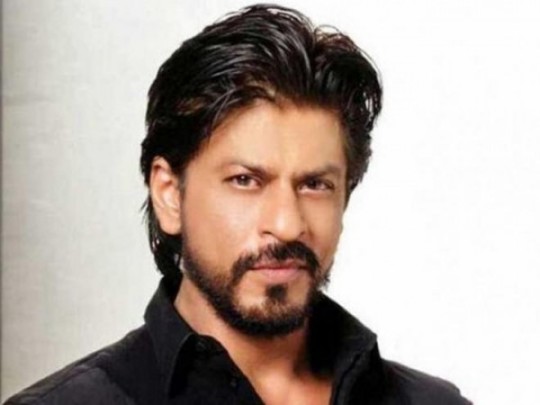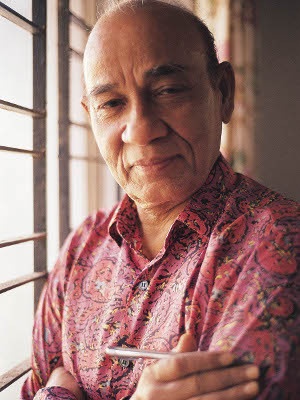#koyla film actors name
Text
Shah rukh Khan और Madhuri Dixit नहीं बल्कि इन कलाकारों के साथ मेकर्स बनाना चाहते थे कोयला, इस वजह से बन नहीं सकी बात
Shah rukh Khan और Madhuri Dixit नहीं बल्कि इन कलाकारों के साथ मेकर्स बनाना चाहते थे कोयला, इस वजह से बन नहीं सकी बात
Shah rukh Khan और Madhuri Dixit नहीं बल्कि इन कलाकारों के साथ मेकर्स बनाना चाहते थे कोयला, इस वजह से बन नहीं सकी बात
View On WordPress
#ABP#koyla#koyla film actors name#koyla film ka dialogue#koyla film ka gana#koyla film shahrukh khan car#koyla film shooting location#koyla movie#koyla movie cast#koyla picture shahrukh khan#madhuri dixit#madhuri dixit age#madhuri dixit and shahrukh khan#madhuri dixit children#madhuri dixit date of birth#madhuri dixit family#madhuri dixit first movie#madhuri dixit husband#madhuri dixit instagram#madhuri dixit movies#madhuri dixit net worth#shah rukh khan movies#Shahrukh Khan#shahrukh khan age#shahrukh khan birthday#shahrukh khan first movie#shahrukh khan happy new year#shahrukh khan height#shahrukh khan height in feet#shahrukh khan net worth
0 notes
Text
Shahrukh Khan Facts, Movies
Shahrukh Khan most popular and romance king actor of bollywood area. He acted many romantic movies, that make him as romance king. He also known as SRK, King Khan, Bollywood Badshah, Don etc. Most of world specialist mark him as top 50 most powerful person around the world
Shah Rukh Khan already increase his net worth $800 million and that great for everyone. His most romantic and best movie is Dilwale Dulhania Le Jayenge (1995). However, after that movie, he acted many successful romantic, action movies for Indian film industry.
Shahrukh Khan Facts
SRK drinks chocoholic wine in parties
He donate poor people regularly
He smoke regularly
He has amazing cars collection including Mercedes, BMW
King Khan always gives absolute interview for his fans

Shah Rukh Khan Movies
Just see his best movies forever. That movies highly heart touching, romantic, drama and action based. Let’s see bellow:
Dilwale Dulhania Le Jayenge
Kuch Kuch Hota Hai
Baazigar
Phir Bhi Dil Hay Hindustani
Mohabbatien
My Name Is Khan
Josh
Veer-Zaara
Kabhi Alvida Na Kehna
Jabhi Khusi Kabhi Gham
Chak De! India
Dilwale
Raees
Kal Hoon Na Hoo
Happy New Year
Chennai Express
Om Shanti Om
Jaab Tak Hai Jaan
Rab Ne Banadi Jodi
Don
Don 2
Main Hoon Na
Koyla
Duplicate
Hum Tumhare Hain Sanam
Only real SRK fans know who is he. Because Shahrukh Khan highly popular in the Indian film industry & also same around the world..
0 notes
Photo

Remembering renowned lyricist Indeevar, on his 20th death anniversary.
The man who penned the title track for the Rajesh Khanna – Sharmila Tagor hit, ‘Safar’, ‘Zindagi ka safar, Hai yeh kaisa safar Koi samjha nahi … Koi jaana nahi …’ is Indeevar. Unluckily enough, Indeevar didn’t get many opportunities like this to pen down these quality songs. His career span is spread over four decades with a quantum of chartbusters only. The very reason could be his compromise on quality on work for his survival in this Indian Music Industry.
Born in Jhansi, Madhya Pradesh as Shyamalal Bahu Rai, he came to the city of dreams, Mumbai with the clear intention of being a lyricist. He got his first assignment for the movie called ‘Double Face’ (1946). To be in the business, he took every assignments and grabbed every film that came his way and didn’t mind working for ‘B’ and ‘C’ grade projects. He got his first big break in the form of ‘Malhaar’ (1951). ‘Bade Armaan Se Rakha Hai Balam Teri Kasam’, a popular composition that retains a refreshing feel even today. But even this song couldn't ensure instant success.
He finally shot into the big league with Babubhai Mistry's musical extravaganza, Parasmani (1963), which also launched the career of music duo Laxmikant-Pyarelal. In subsequent years, Indeevar forged a strong bond with a select set of filmmakers and music directors, that resulted in a repertoire of music that was eminently hummable, subtly evocative and definitely unforgettable.
Though he got his first break in Justice Choudhury (1946) - he did another film of that name in 1983 - he did not get credit for the song, because by prior arrangement it went to top name Dinanath Madhok. Later he wrote songs like Kaise koi jiye (Baghban) and Aanewale kal ki tum tasveer ho (Chhote Babu), but recognition came only with Roshan s and Mukesh s Malhar with brilliant songs like Tara toote duniya dekhe , Bade armaanon se rakkha hai , Ek baar agar tu keh de and Hota rahaa yun hi gar anjaam wafaa ka . This also helped him being established as a regular lyricist as till then it was only assumed that he could excel in patriotic songs.
The learned lyricist however hit big-time only after his association with Kalyanji-Anandji began around the early 60s. But from then on Indeevar never looked back all the way till his death in 1997, tuning with composers from Roshan in the 40s to Viju Shah, Aadesh Shrivastava, Anand Raaj Anand and Jatin-Lalit in the 90s. The only composer with whom I never worked somehow was S.D.Burman. I even recorded a song with Naushad for B.R.Chopra s Chanakya Aur Chandragupta, because Sahir Ludhianvi insisted that I do the film! said the poet. And this honour came to Indeevar because Sahir had called upon him to check the Hindu veracity of the former s lyrics in Chitralekha. I told Sahir that they were perfect! recalled Indeevar.
Indeevar s deshbhakti genre did not find much representation in Hindi cinema. Songs like Dulhan chali and Hai preet jahaan ki reet sadaa were used - with necessary modifications over 20 years after he penned them as poems - in Manoj Kumar s Purab Aur Paschim. But there were two kinds of songs that he was best associated with - the intensely passionate passages on beauty and the songs that were loaded with truisms on life. There was a third kind too - the chaalu stuff that he did mainly for Bappi Lahiri s southern films in the 80s, but Indeevar was very clear about them as well. These songs were naughty, not cheap or vulgar. Often the way they were filmed made them seem that way. What shocked most people was that Indeevar could write such stuff. But a good lyricist must be an all-rounder. And I was getting good money to be one!
Yes, Indeevar-ji had his idiosyncrasies and over a period of years we learnt how to use them well! For example, he tended to be a bit slow at work, so we wanted a title-song for Safar quickly we goaded him by saying that since he took a month to write a good song we had told the director to get someone else. He was immediately uptight and demanded to know the situation. We told him that it was about how no one understood the meaning of life, and that the mukhda had to include the word Safar or journey, because it was the title of that film. Within 30 minutes, the lyrics and tune of Zindagi ka safar hai yeh kaisa safar was ready and approved!
He had his humorous, child-like side too. He wanted to go with us once to London, and we told him that it was pointless for him because he could not even tolerate hill-tation climates. But so determined was he that he installed an airconditioner in his home in the intervening weeks. When he came to the airport in humid July he was already wearing an overcoat and a wig, because someone had also told him that being bald would not look good in Britain! In the flight he kept laughing loudly and when asked why, he stated that according to Freud one must laugh when one is scared!
Lyricists tend to have favourite words and phrases and Indeevar-ji s favourite word was kya , but he used this word with innumerable variations, as in Kasme vaade pyar wafa sab baatein hain baaton ka kya , Kya khoob lagti ho , Ek tu na mila saari duniya mili bhi to kya hai and many others.
One of his most creative and fruitful alliances was with Manoj Kumar, who first signed him on for Upkar (1967). Indeevar and Kalyanji-Anandji injected the film with a fine blend of soulful emotion and patriotic euphoria through songs like ‘Kasme Vaade Pyaar Wafa’. Equally powerful were compositions like ‘Dulhan Chali, O Pehen Chali’ and ‘Koi Jab Tumhara Hriday Tod De’ from Purab Aur Paschim (1970). Earlier, in 1968, he had culled an awesome collection of soulful lyrics for Govind Saraiya's Saraswati Chandra.
Together with his long-standing partners, Kalyanji-Anandji he produced unforgettable numbers such as ‘Chhod De Saari Duniya Kisi Ke Liye’, ‘Chandan Sa Badan’ and ‘Main To Bhool Chali Babul Ka Des’.
In direct contrast to this classic score, the trio set an upbeat mood for Vijay Anand's musical hit, Johny Mera Naam (1970) with zany songs like ‘Nafrat Karne Walon Ke’ and ‘Pal Bhar Ke Liye Koi Hame Pyaar Kar Le’ and ‘O, O Mere Raja’.
Two of Indeevar's best-remembered films were made the same year. While Manmohan Desai's Sachcha Jhootha produced ‘Meri Pyaari Beheniya Banegi Dulhaniya’, which has since become a permanent fixture in every wedding band, Asit Sen's Safar had Indeevar's poetic juices churning out wonders like ‘Jeevan Se Bhari Teri Aankhen’ and ‘Jo Tumko Ho Pasand’. Throughout the 1970s, his winning combination with Kalyanji-Anandji grew stronger and continued all the way up to Qurbani's' (1980) ‘Hum Tumhe Chaahte Hain Aise’.
With the arrival of the disco beat and the Bhappi Lahiri wave, Indeevar put poetry on the backburner and stood up to the task of delivering mindless lyrics. There was a preset combination for all these Southern-style 'pots-n-pans' hits: Jeetendra, Sridevi, Jaya Pradha, Bhappi Lahiri and Indeevar. All the way from Himmatwalas' (1983) ‘Nainon Mein Sapna’ to Tohfa's nonsensical title song, Indeevar willfully accepted and adapted to the changing trends in film music.
Towards the end of his career, he notched up a few hits with actor-turned-filmmaker Rakesh Roshan such as Karan Arjun (1995) and Koyla (1997). But even as he was trying to redeem himself as a poet, Indeevar passed away on February 27, 1997.
0 notes